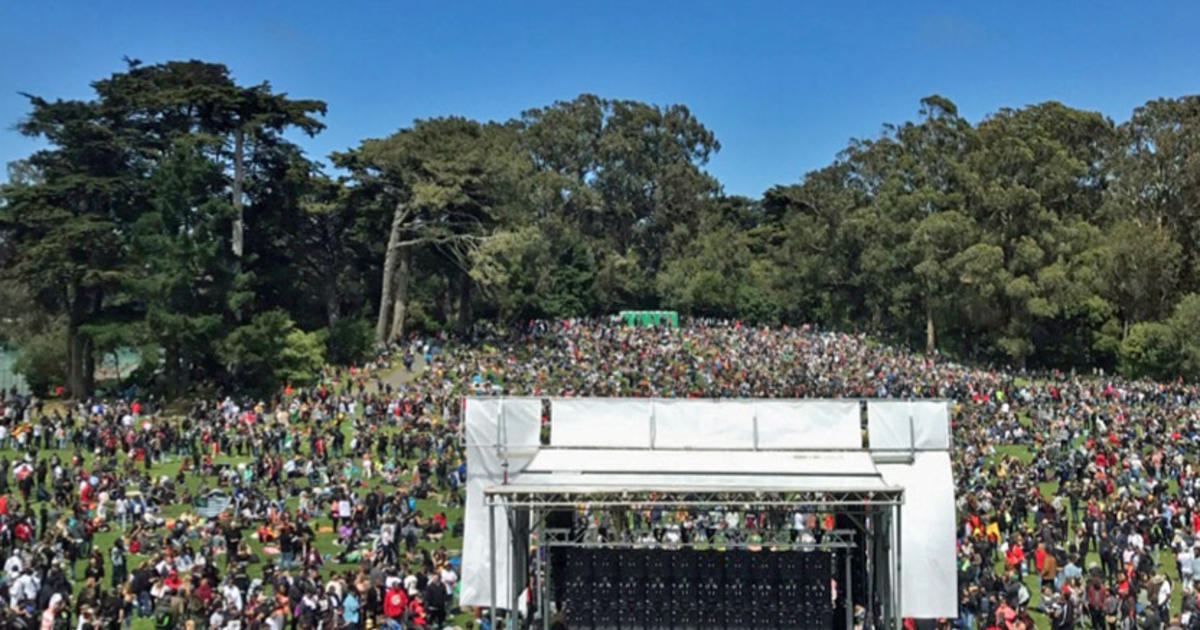Facebook CEO Says IPO Made Company Stronger
SAN FRANCISCO (CBS / AP) -- Facebook CEO Mark Zuckerberg didn't really want to take his company public last year, but he has changed his mind now that the Internet social network's stock is steadily rising.
Zuckerberg told a San Francisco audience attending a technology conference that he believes the rigors of an initial public offering of stock completed 16 months ago turned Facebook Inc. into a stronger company.
"We run our company a lot better now," Zuckerberg said late Wednesday during an onstage interview at the conference put on by AOL Inc.'s TechCrunch blog. "In retrospect, I was too afraid of going public. I have been very outspoken about staying private as long as possible, but I don't think it's that necessary to do that."
The remarks came just a few hours after Facebook's stock hit its highest price since the IPO, which had been widely panned as a monumental flop until investors recently regained their faith in Zuckerberg and the Menlo Park, Calif., company.
Facebook's stock gained $1.44 to close at $45.04, slightly above the previous peak reached on its first day of trading in May 2012.
The current price may not look that impressive, given that it's just 18 percent above the $38 per share paid by investors who bought into the IPO.
By comparison, Standard & Poor's 500 index has risen by 29 percent during the same stretch. And the stock of online professional networking service LinkedIn Corp.—a much smaller company than Facebook—has increased by more than fivefold since it was priced at $45 in a May 2011 IPO.
But Facebook has made a remarkable recovery since bottoming out at $17.55 last September. It was hit by concerns about the company's slowing growth and skepticism about Zuckerberg's ability to sell more advertising on the mobile devices that have become the social network's main conduit with its 1.1 billion monthly users.
Zuckerberg predicted Facebook would build a thriving mobile business when he appeared at TechCrunch's conference last year, and now Wall Street believes him. Facebook left little doubt it's now heading in right direction when it released second-quarter results in late July that topped analysts' projections and showed that 41 percent, or $656 million, of the company's digital advertising revenue now comes from mobile phones and tablet computers.
Since those numbers came out, Facebook's stock has surged by 66 percent. No one has benefited from the gain more than Zuckerberg, who has seen the value of his Facebook stock soar from $16 billion to $27 billion in less than two months.
Zuckerberg, 29, had resisted taking Facebook public for years because he worried he would lose control over the company that he co-founded in 2004 in his Harvard University dorm room. He was also concerned that Facebook's workforce would start focusing more on the company's stock price instead of building great products and services.
Now, he considers it to be "a valuable process" that helped him learn more about the best way to run Facebook. "You have to just stay focused on doing the right stuff," Zuckerberg said. "Sometimes it might take the market a little while to catch up and see the results of what you're doing."
Zuckerberg reflected on Facebook's IPO in response to a question about how he would advise online messaging service Twitter, which is expected to go public within the next year. "I am kind of the person you would want to ask last how to make a smooth IPO," Zuckerberg said.
During his half-hour appearance, Zuckerberg also criticized the Obama administration for not being more forthcoming about how the National Security Agency has been obtaining electronic communications and other information transmitted over the Internet from a list of major technology companies that includes Facebook, Google Inc., Yahoo Inc., Microsoft Inc. and Apple Inc.
Documents that former NSA contractor Edward Snowden has shared with major newspapers have indicated Facebook and the other companies have set up systems to help the NSA monitor online communications to protect against terrorism. The companies have said they have only turned over a limited amount of personal information, and only under orders from a secret court. Facebook, Google, Yahoo and Microsoft have all filed lawsuits seeking clearance to disclose more details about the orders that have been submitted to them by the Foreign Intelligence Surveillance Court.
"I think it's our job and my job to protect everyone who uses Facebook and all the information that they share with us," Zuckerberg said. "It's our government's job to protect all of us, and also to protect our freedom and economy and companies. I think they did a bad job of balancing those things here. Frankly, I think the government blew it."
(Copyright 2013 by CBS San Francisco. All Rights Reserved. This material may not be published, broadcast, rewritten, or redistributed.)



